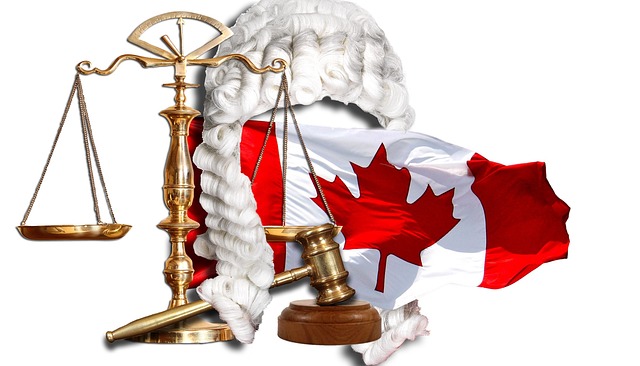Grandparent legal representation plays a vital role in ensuring grandparents' rights and connections with grandchildren during child custody decisions. By securing competent legal counsel, grandparents can navigate complex family law systems, advocate for meaningful time with their grandchildren, and protect their rights. This process involves understanding local laws, filing petitions, gathering evidence, and presenting arguments based on the child's best interests and research-backed benefits of strong family connections. Effective communication, documentation, and ongoing engagement with lawyers and courts are key to securing favorable outcomes. Even with limited access, technology enables grandparents to maintain and strengthen relationships, fostering stability and a sense of belonging for their grandchildren.
In many family custody disputes, grandparents play a vital role in shaping the future of their grandchildren. Ensuring their involvement and understanding of their legal rights is crucial. This comprehensive guide explores the intricacies of grandparent legal representation, offering insights into navigating complex family law processes. From recognizing their place in custody decisions to building compelling cases and maintaining post-decision relationships, this article equips grandparents with the knowledge to protect their bonds with their loved ones.
- Understanding Grandparent's Legal Rights in Child Custody Cases
- The Importance of Grandparent Legal Representation
- Navigating Family Law: Processes and Procedures for Grandparents
- Building a Strong Case: Evidence and Arguments for Grandparent Involvement
- Strategies for Effective Communication with Lawyers and Courts
- Supporting Long-Term Relationships: Maintaining Grandparent-Grandchild Bonds After Custody Decisions
Understanding Grandparent's Legal Rights in Child Custody Cases

In many jurisdictions, grandparents have recognized legal rights and roles in child custody decisions. While parental rights are typically prioritized, grandparent legal representation can play a significant part in maintaining familial connections and ensuring the best interests of the child are considered. Grandparents may seek joint custody, visitation rights, or even primary custody if circumstances allow and they can demonstrate a strong bond with the child.
Having competent legal representation for grandparents is crucial. Grandparent legal representation ensures their rights are protected and their voices heard during court proceedings. It enables them to navigate complex family law systems, present compelling arguments, and advocate for meaningful time with their grandchildren. This representation fosters fairness in custody decisions, recognizing the vital role grandparents can play in a child’s life.
The Importance of Grandparent Legal Representation

In many families, grandparents play a vital role in a child’s life, providing love, support, and guidance. However, when child custody decisions come into play, it’s crucial for their voices to be heard legally. Grandparent legal representation ensures that these important figures have access to justice and can actively participate in shaping the future of their grandchildren. This representation is essential as it allows grandparents to navigate complex legal systems, understand their rights, and advocate for arrangements that align with the child’s best interests and their unique bond.
Having legal counsel specialized in family law and grandparent rights empowers grandparents to make informed choices. They can effectively communicate their concerns, share valuable insights into a child’s upbringing, and collaborate with lawyers to present compelling cases. This representation not only strengthens their position but also ensures that the court considers the significant contribution of grandparents to a child’s well-being and development.
Navigating Family Law: Processes and Procedures for Grandparents

Navigating family law can be a complex process, especially for grandparents seeking involvement in child custody decisions. Grandparents often face unique challenges when advocating for their rights, as they may not be familiar with the legal procedures and terminology. One crucial step is to understand the jurisdiction’s laws regarding grandparent legal representation. Many regions have specific provisions allowing grandparents to seek legal counsel or representation in family law matters. This can empower them to effectively communicate their desires and concerns during custody proceedings.
The process typically involves filing a petition or motion with the court, outlining the reasons for involvement and the specific custody arrangements desired. Grandparents may need to gather supporting documentation, such as medical records or evidence of a strong parental bond. Legal representation can guide them through these steps, ensuring their voices are heard and their rights protected throughout the custody decision-making process.
Building a Strong Case: Evidence and Arguments for Grandparent Involvement

Building a strong case for grandparent involvement in child custody decisions requires a strategic approach, backed by compelling evidence and well-crafted arguments. Grandparents seeking legal representation should gather documentation that highlights their positive impact on the child’s life, such as photos, letters, or testimonies from teachers and other care providers. These can serve as powerful tools to demonstrate the benefits of regular grandparent-child interactions.
Legal arguments should focus on the child’s best interests, emphasizing grandparental involvement as a stable and loving component in their upbringing. Grandparents can point to research indicating that strong family connections contribute to children’s emotional well-being and overall development. Well-prepared legal representation can navigate complex custody laws, presenting a compelling case for why grandparent involvement is not only beneficial but also legally justified.
Strategies for Effective Communication with Lawyers and Courts

Grandparents play a unique and invaluable role in their grandchildren’s lives, making their involvement in custody decisions essential. To ensure their voice is heard, effective communication with lawyers and courts is crucial. Engaging grandparent legal representation can significantly impact the outcome of these cases. This strategy allows for a dedicated advocate to navigate the complexities of family law, ensuring grandparents’ rights and interests are protected throughout the process.
A key aspect of successful communication is clear and open dialogue. Grandparents should feel empowered to express their desires, concerns, and unique perspectives regarding custody arrangements. Regular meetings with lawyers can facilitate this exchange, allowing legal professionals to guide and advise while also advocating for the grandparent’s active role in the child’s life. Additionally, maintaining thorough documentation of conversations and agreements is vital to demonstrating a well-informed and consistent approach during court proceedings.
Supporting Long-Term Relationships: Maintaining Grandparent-Grandchild Bonds After Custody Decisions

After custody decisions are made, it’s crucial to focus on maintaining and strengthening grandparent-grandchild relationships. Grandparents play a vital role in a child’s life, offering love, support, and unique perspectives. Even with limited legal access or visitation rights, they can still foster meaningful connections. Ensuring grandparent legal representation is essential during custody battles; professionals can advocate for their involvement, helping to navigate complex legal processes.
Regular communication and quality time are key to preserving these bonds. Grandparents can stay involved by participating in school events, sharing hobbies, or simply having open conversations. Technology can be a game-changer here—video calls and shared digital albums keep the lines of connection active. This continuous engagement enriches the child’s life, providing stability and a sense of belonging, especially during challenging custody situations.














